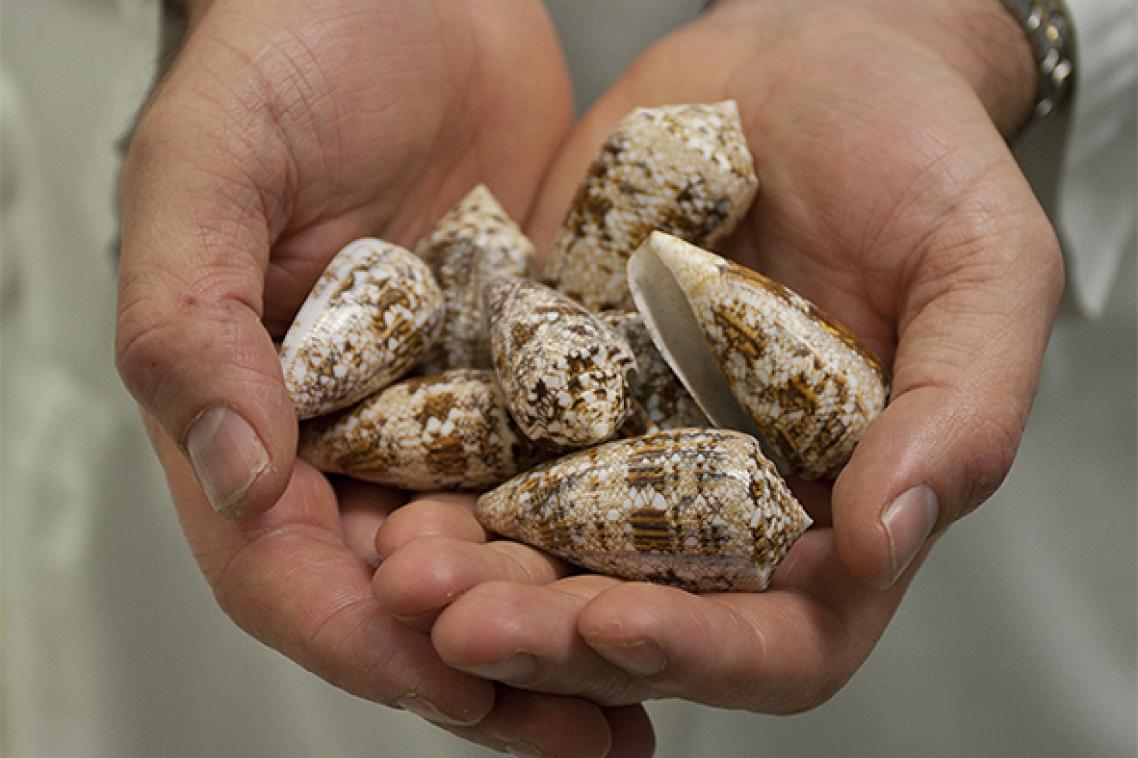Pain drug in pipeline as researchers unwind marine snail puzzle

A University of Queensland researcher has made a big step toward the holy grail of biomedical science — a new form of effective pain relief.
School of Biomedical Sciences researcher Dr Richard Clark said marine snail venom was a well-known and promising source of new pain drugs, but substantial hurdles had restrained progress.
“Translating the venom’s toxins into a viable drug has proved difficult,” Dr Clark said.
“But now we’ve been able to identify a core component of one of these conotoxins (toxins from cone snail venom) during laboratory tests.
“We think this will make it much easier to translate the active ingredient into a useful drug.”
Dr Clark said a sea snail used its venom to immobilise prey and protect itself.
“The venom’s analgesic properties have been well researched,” he said.
“In this study, we’ve been able to shrink a particular conotoxin to its minimum necessary components for the pain relief properties to continue to work.
“Using a laboratory rat model, we used the modified conotoxin to successfully treat pain generated in the colon, similar to that experienced by humans with irritable bowel syndrome.
“Although the conotoxin has been modified, its pain relief properties remained as effective as the full-size model.
“Simplifying the conotoxin will make a drug much faster and cheaper to develop.”
Dr Clark said further research was under way to improve the modified conotoxin’s stability and to test its ability to treat other types of pain.
The research, published in Angewandte Chemie International Edition, was undertaken in collaboration with Professor David Craik at UQ’s Institute for Molecular Bioscience, Professor David Adams at the Royal Melbourne Institute of Technology and Associate Professor Stuart Brierley at the University of Adelaide.
The Australian Research Council and the National Health and Medical Research Council provided funding for the study.
The research is the subject of a patent application and the researchers are seeking funding to develop the technology further.
Media: Dr Richard Clark, richard.clark@uq.edu.au, +61 7 3365 1527; Lynda Flower, UQ Communications, l.flower@uq.edu.au; +61 7 3346 9865.
Topics
Related articles

Should you consent to your doctor using an AI scribe? Here’s what you should know.

How a drone delivering medicine might just save your life
Media contact
UQ Communications
communications@uq.edu.au
+61 429 056 139
